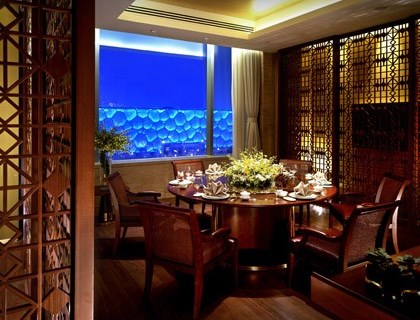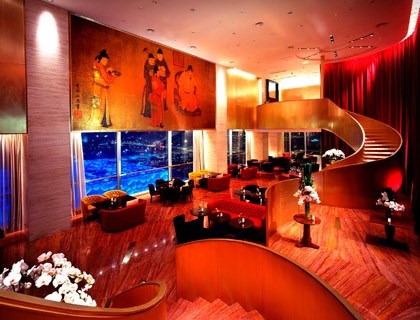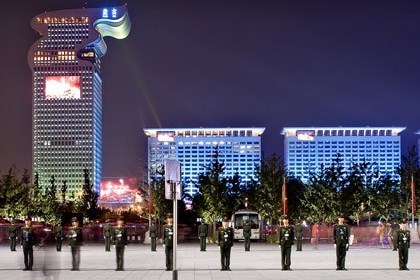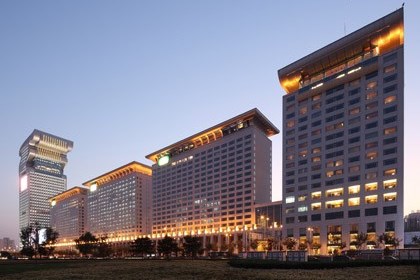
With the PuLi Hotel & Spa becoming the latest landmark icon to grace Shanghai, after opening a couple of months ago, the attention now shifts to sister city Beijing, where a dragon-like structure boasting more stars than Dubai’s Burj Al Arab signals the country’s latest opulent showpiece.
To give you an idea of the importance placed by the Chinese authorities on the Pangu 7 Star Hotel Beijing, part of the larger Pangu Plaza development, local building laws were changed to accommodate the 39,361 sqm juggernaut.
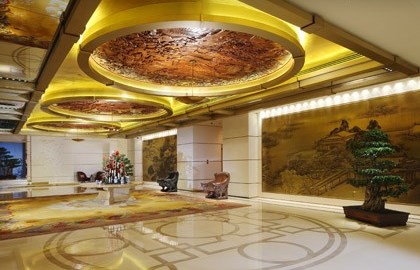
Celebrated Taiwanese architect C.Y. Lee, who was responsible for Taiwan’s statement-making landmark – the Taipei 101 Tower, was roped in for this project.
Shaped like a dragon, the Pangu Plaza guards the prestigious historical axis that connects the Forbidden City to the 2008 Olympic Park, and is walking distance from Beijing’s Olympic architectural mascots – the Bird’s Nest Stadium and Water Cube.
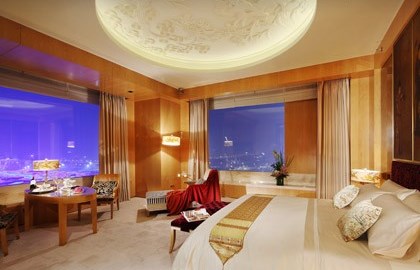
As you might have guessed, fengshui played a huge role in the design and location of the ‘dragon’. It is believed that the ‘yang’ element of this dragon design perfectly complements the ‘yin’ of the Dragon Lake in the neighboring National Forest Park.
Dragons also feature prominently in the hotel’s façade and interiors – perched atop the 66 granite columns, as motifs in the yellow carpets and sculpted armchairs that grace the hotel lobby and in the lampshades that adorn the 234 rooms and suites.
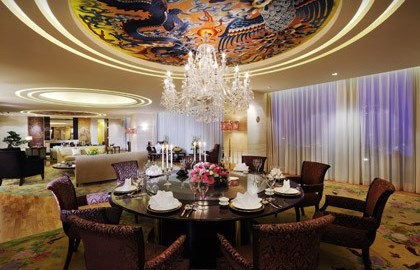
With the seven-star billing, you would expect only the best amenities in each room – giant flatscreens, Bose surround system, and Ferre and Hermes bath products.
But if we were to single out any particular ‘room’ for recommendation, it has to be the 770 sqm Sky Courtyard on the 23rd floor of the Pangu Plaza.
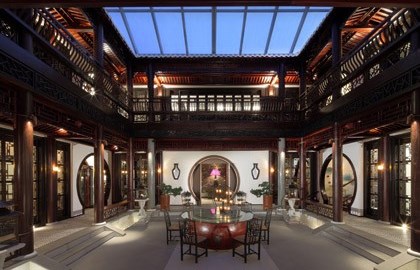
Recreating the traditional Chinese courtyard living with private lift access, rooftop garden, wading pool and electronically retractable glass roof, the bedroom of a Chinese emperor in the 21st century would have looked like one of these. The price to feel like a king for a night? A cool one million RMB.
